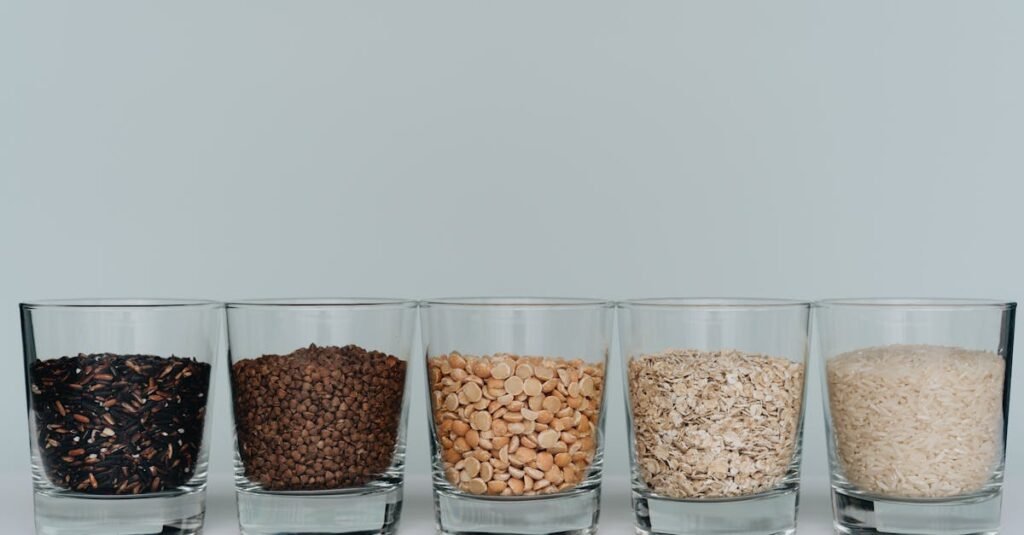When it comes to protein supplements, whey protein and whey isolate are two of the most popular choices among fitness enthusiasts, bodybuilders, and health-conscious individuals alike. Understanding the differences between these two types can help you make an informed decision about which one suits your needs better. In this article, we will explore the key differences in a structured format, followed by a detailed FAQ section to further clarify your queries.
| Feature | Whey Protein | Whey Isolate |
|---|---|---|
| Protein Content | 70-80% | 90% or higher |
| Fat Content | Higher | Lower |
| Lactose Content | Moderate | Minimal |
| Absorption Rate | Moderate | Fast |
| Price | More affordable | More expensive |
| Flavor Options | Variety available | Limited options |
| Best For | General use | Post-workout recovery |
Protein Content
Whey protein typically contains between 70-80% protein by weight, making it a solid choice for those looking to increase their protein intake without breaking the bank. In contrast, whey isolate boasts a protein content of 90% or higher, making it a more concentrated source of protein. This higher protein content can be particularly beneficial for athletes and bodybuilders who require a greater amount of protein for muscle repair and growth.

Fat Content
Whey protein generally has a higher fat content compared to whey isolate. This is due to the fact that whey protein retains some of the fat found in whole milk, from which it is derived. Whey isolate, however, undergoes further processing to remove most of the fat, making it a leaner protein source. This difference in fat content can influence your choice based on your dietary goals, especially if you’re aiming for a low-fat diet.

Lactose Content
For individuals who are lactose intolerant, the lactose content in whey protein can be a concern, as it contains a moderate amount of lactose. On the other hand, whey isolate is processed to remove most of the lactose, making it a better option for those who have lactose sensitivity. If you experience digestive discomfort with whey protein, switching to isolate may alleviate these issues.

Absorption Rate
The absorption rate of whey protein is moderate, while whey isolate is absorbed much faster. This rapid absorption makes whey isolate an ideal choice for post-workout recovery when your muscles are in need of quick nutrition. If you are looking for a supplement to take immediately after exercise, whey isolate may be the better option, while whey protein can serve as a good general supplement throughout the day.

Price
When it comes to price, whey protein is generally more affordable than whey isolate. This price difference is primarily due to the additional processing that whey isolate undergoes, which results in a more concentrated product. For those on a budget, whey protein can provide an effective protein source without the higher cost associated with isolates.

Flavor Options
Whey protein typically offers a wider variety of flavors and formulations compared to whey isolate. This can make it more appealing to those who enjoy trying different flavors or prefer a specific taste. Whey isolate, while available in flavors, may have more limited options, which could influence your purchasing decision based on taste preferences.

Best For
Whey protein is suitable for general use and can fit into a variety of dietary plans, making it ideal for casual users. In contrast, whey isolate is often recommended for post-workout recovery due to its high protein content and fast absorption rate. Athletes and serious fitness enthusiasts may prefer whey isolate to maximize their recovery and muscle-building potential.

FAQ
What is whey protein and how is it made?
Whey protein is a high-quality protein derived from milk during the cheese-making process. It is a byproduct of the curdling of milk, where the liquid whey is separated from the solid curds. The whey is then processed and dried to create a powder that is rich in essential amino acids.
Can I use whey protein if I am lactose intolerant?
If you are lactose intolerant, you may still be able to consume whey protein, but it is important to choose whey isolate, which has minimal lactose content. Many individuals who are lactose intolerant can tolerate whey isolate without any digestive issues.
Is whey isolate better than whey protein for muscle gain?
Whey isolate is often considered better for muscle gain due to its higher protein content and faster absorption rate, which can aid in quicker recovery after workouts. However, both forms can be effective; the choice ultimately depends on your specific needs and dietary goals.
How should I incorporate whey protein or isolate into my diet?
You can incorporate whey protein or isolate into your diet by mixing it into smoothies, shakes, or baking recipes. Consuming it as a post-workout shake is particularly effective for recovery, but it can also be taken throughout the day to meet your protein requirements.
References:
– [National Institutes of Health – Protein](https://ods.od.nih.gov/factsheets/Protein-HealthProfessional/)
– [U.S. Department of Agriculture – Protein Foods](https://www.fns.usda.gov/wic/wic-foods)



